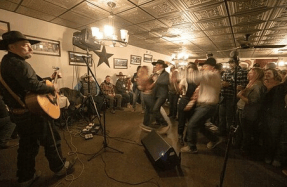A ‘second wave’ of Indigenous voter suppression

IN RESPONSE TO the COVID-19 pandemic, South Dakota encouraged voters to use absentee ballots in the June 3 presidential primary election. Although the state received almost 89,000 absentee ballots in the primaries — five times the number of absentee ballots cast in the June 2016 primaries — and voting increased across the state, voter turnout on the Pine Ridge Reservation remained low, at approximately 10%. As author Jean Schroedel explains in her new book, Voting in Indian Country: The View from the Trenches, barriers to Indigenous voting are nothing new. Absentee ballots may only make them worse.
Though the 1924 Indian Citizenship Act granted citizenship to all Indigenous people born within the United States, voting can still be difficult for tribal
You’re reading a preview, subscribe to read more.
Start your free 30 days





